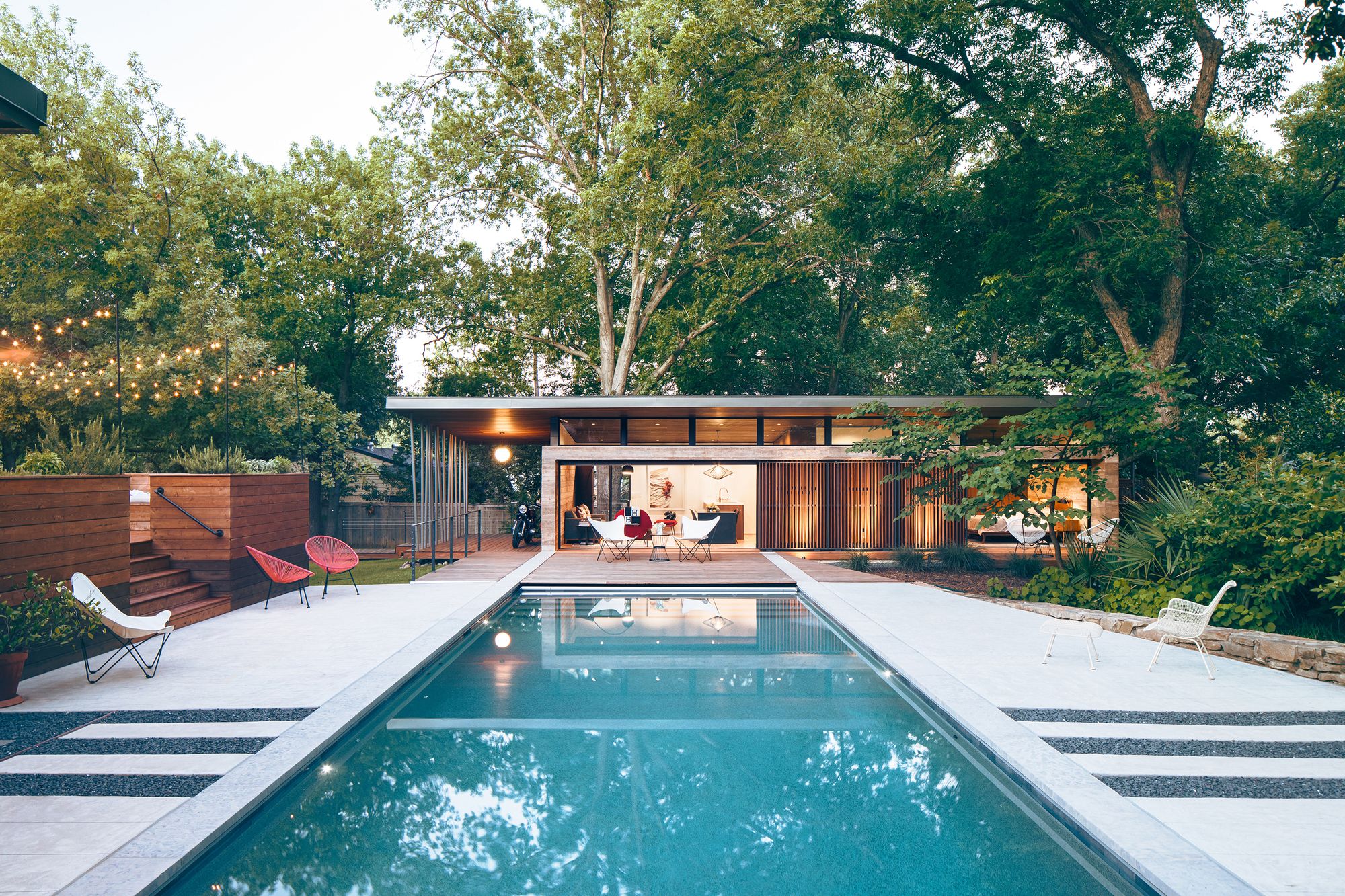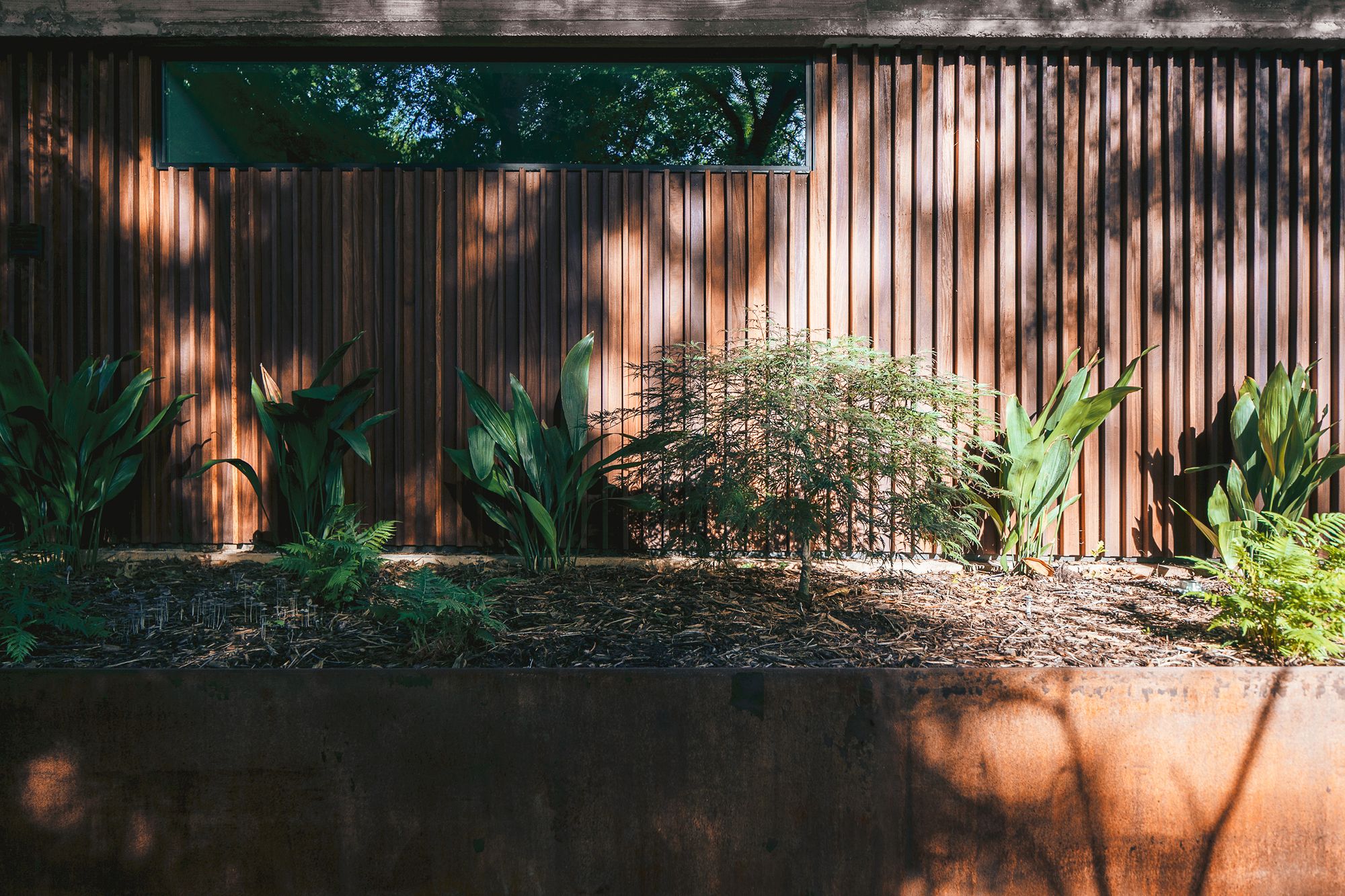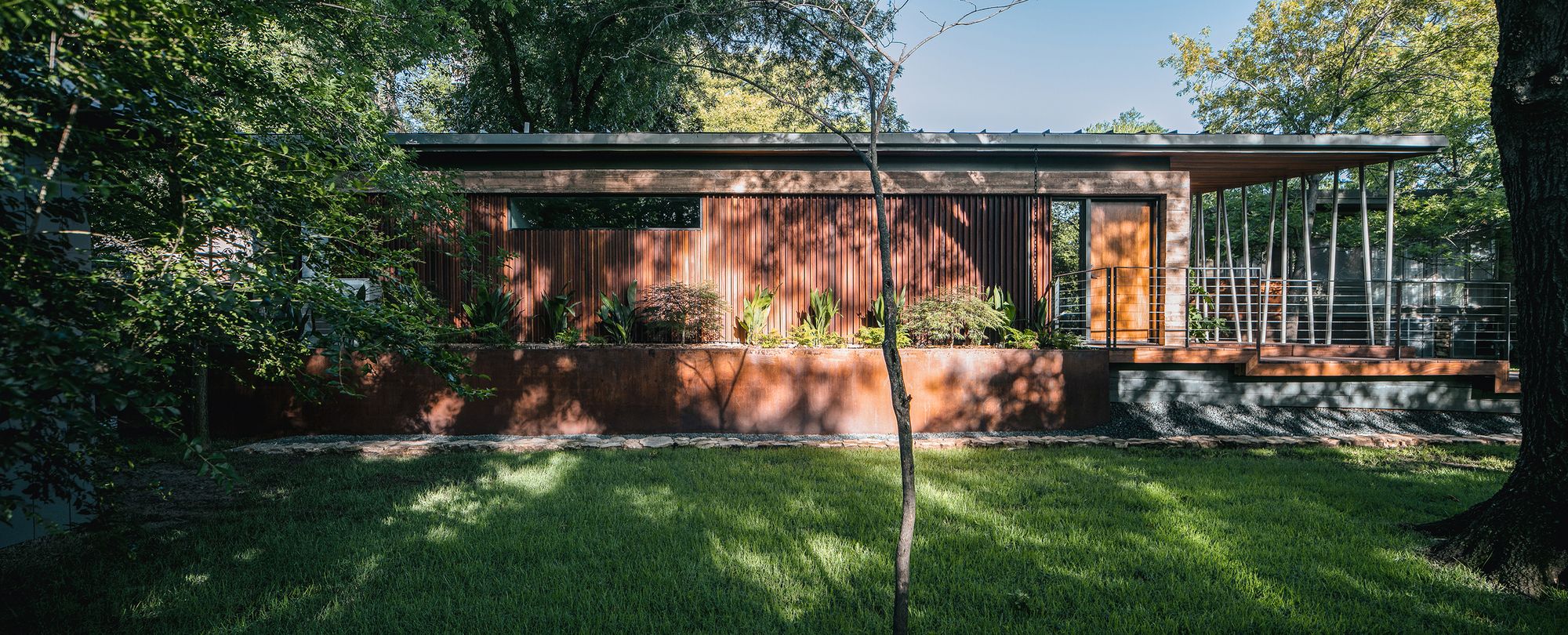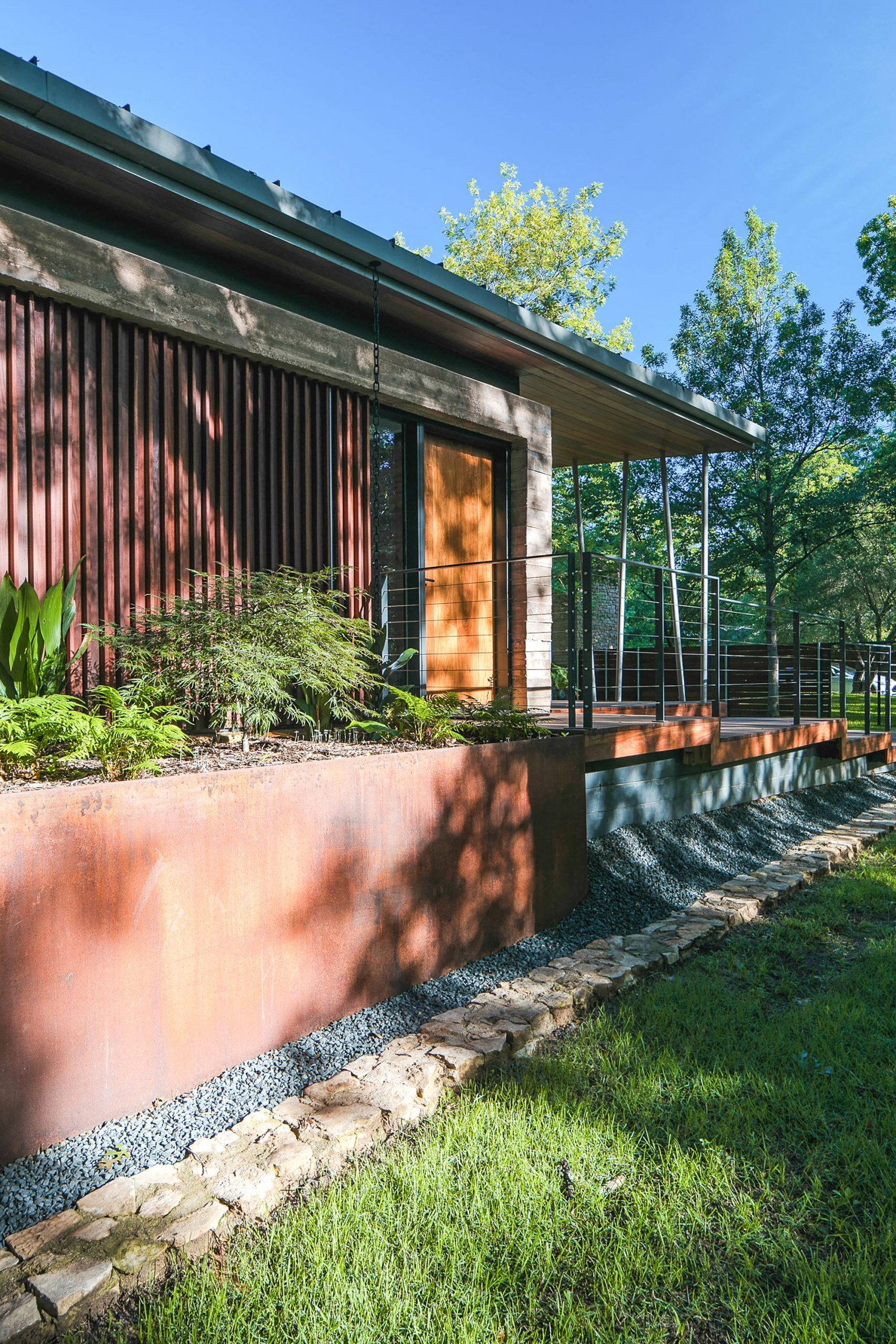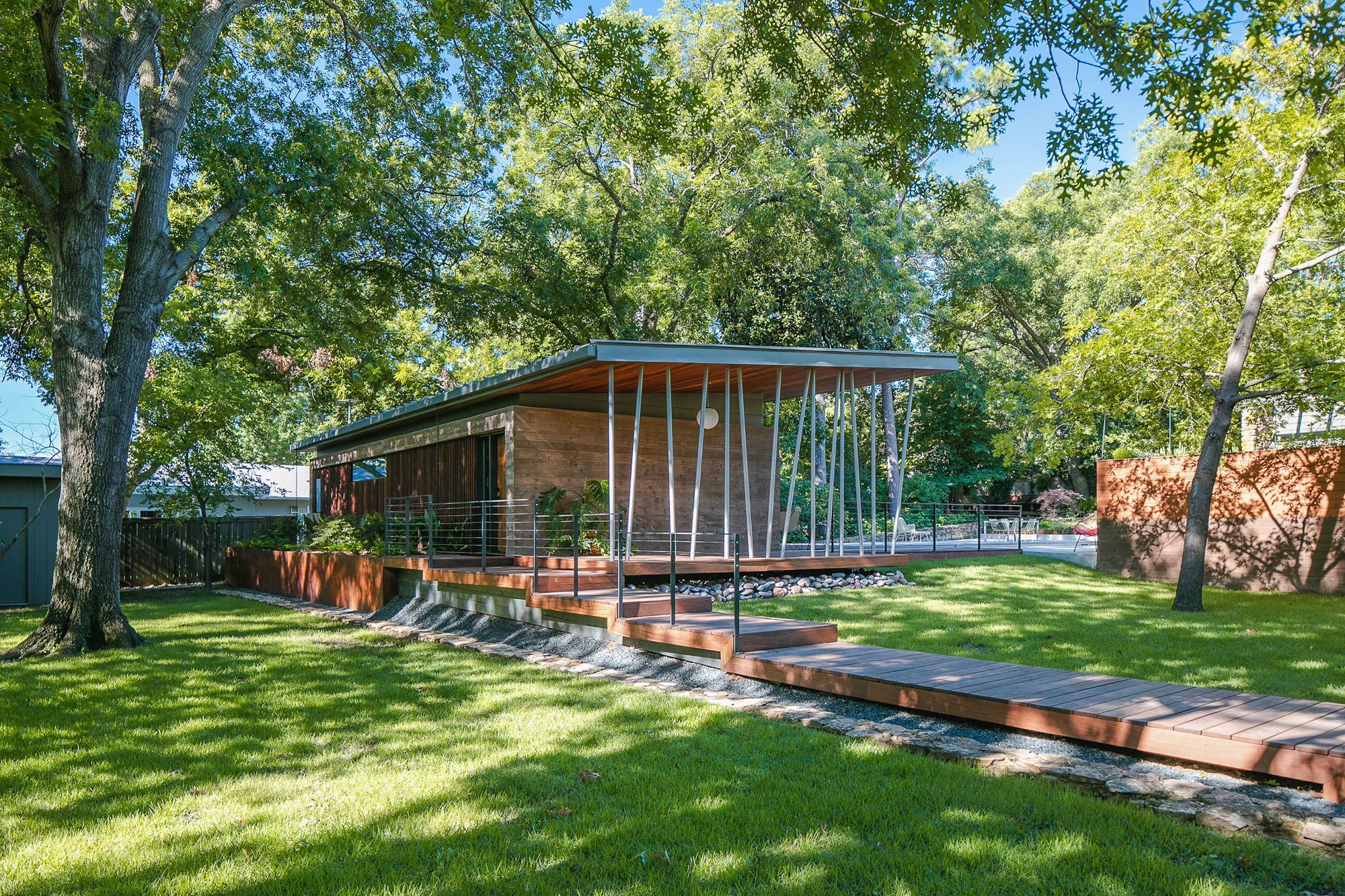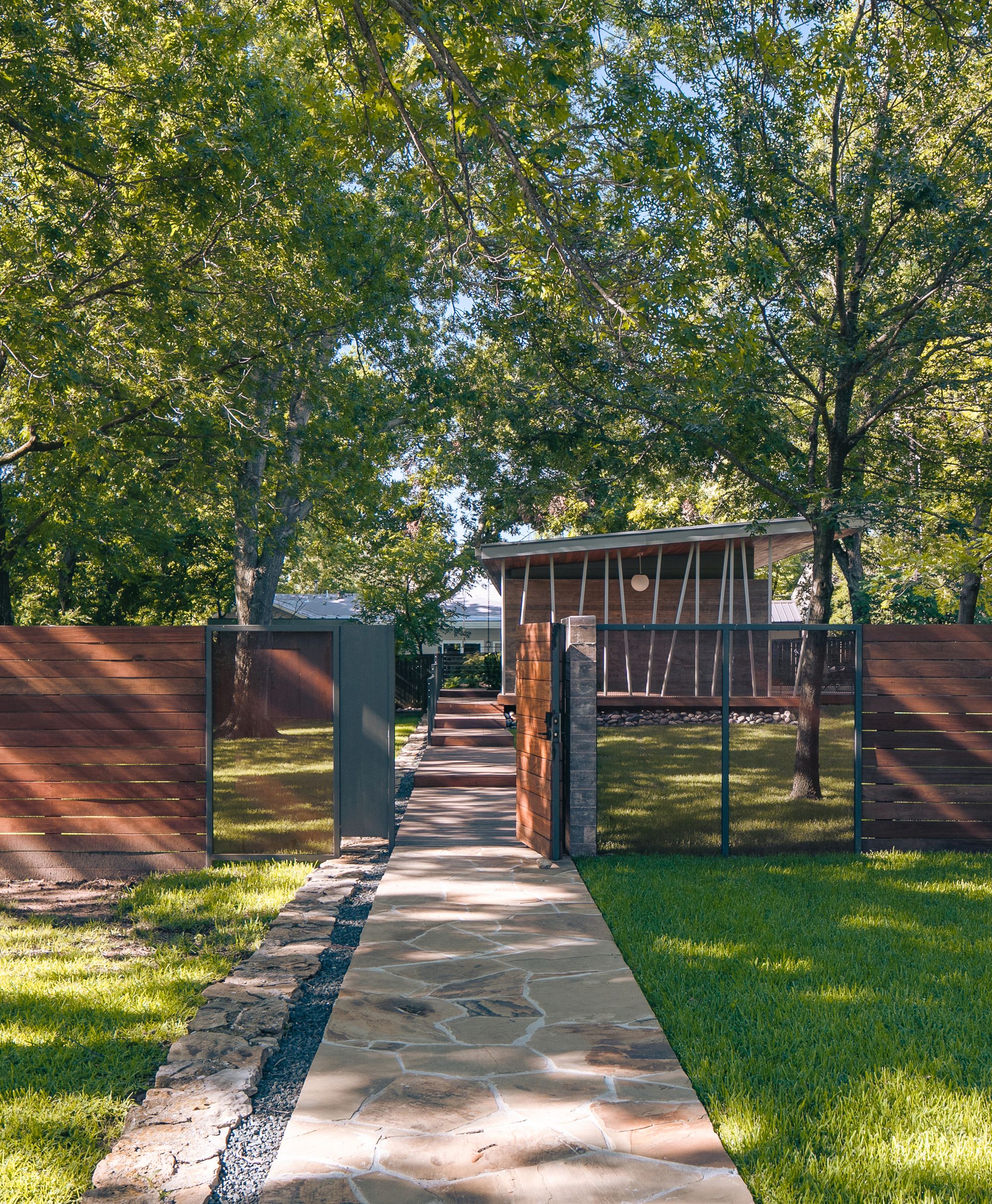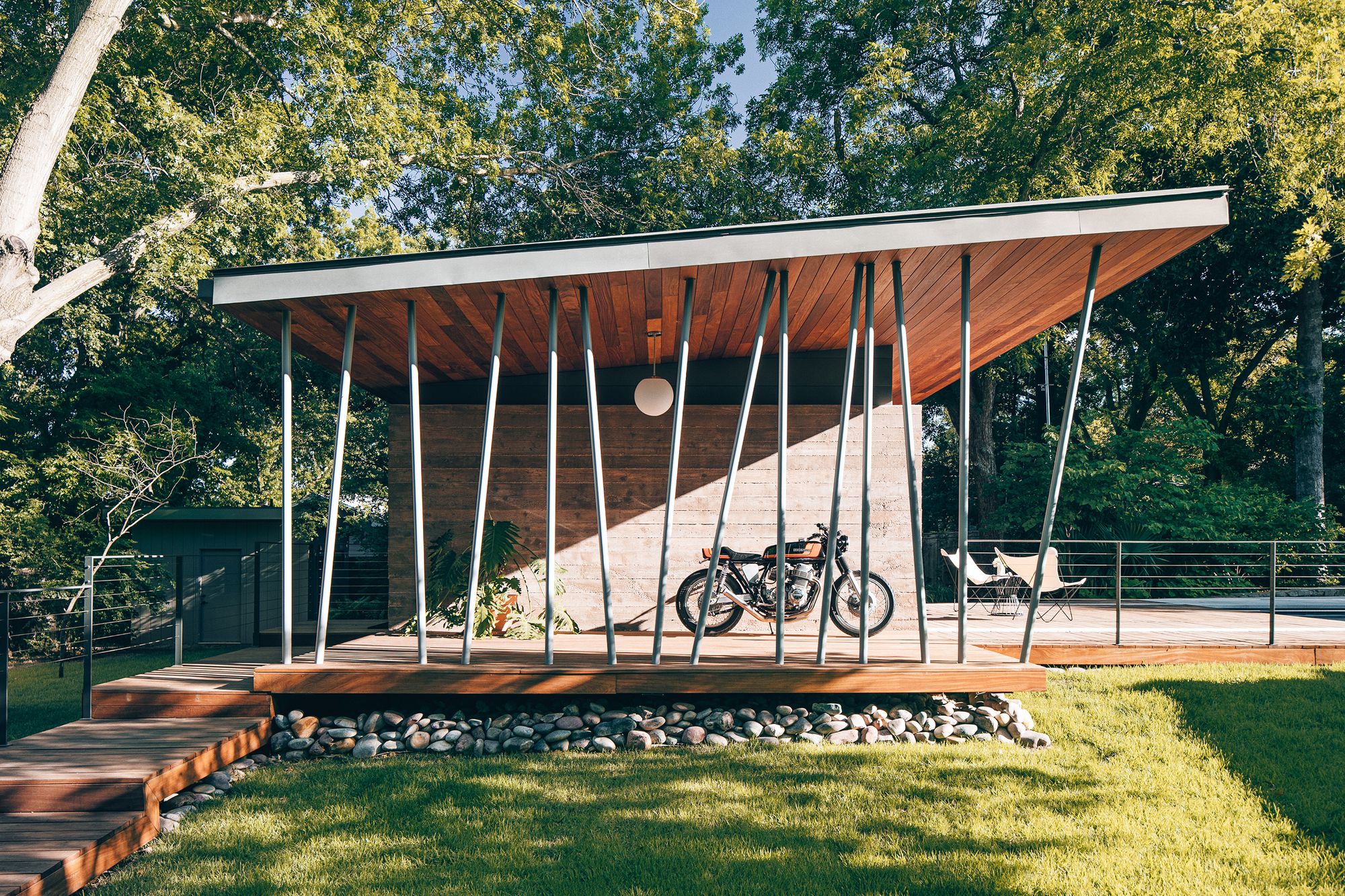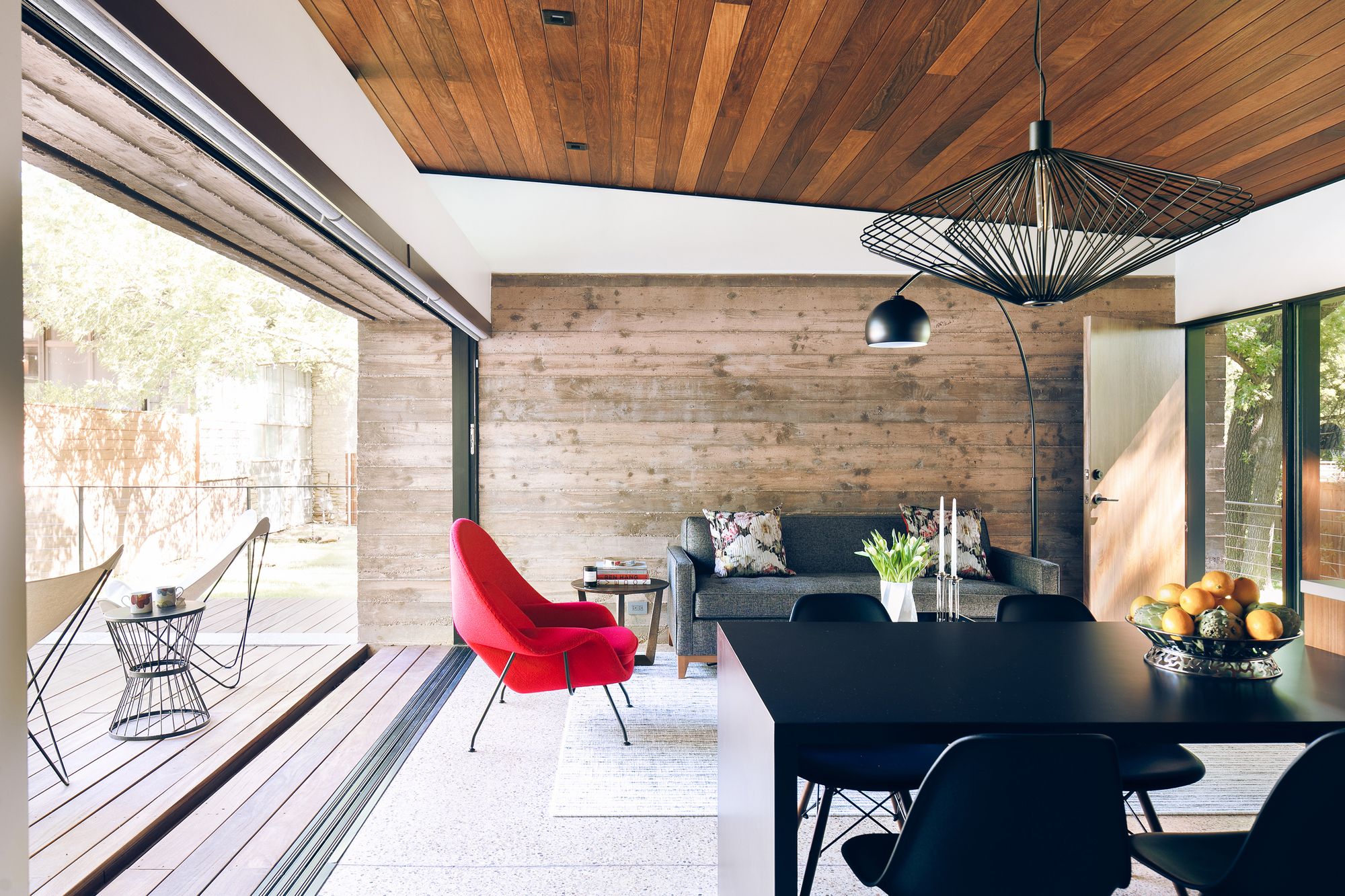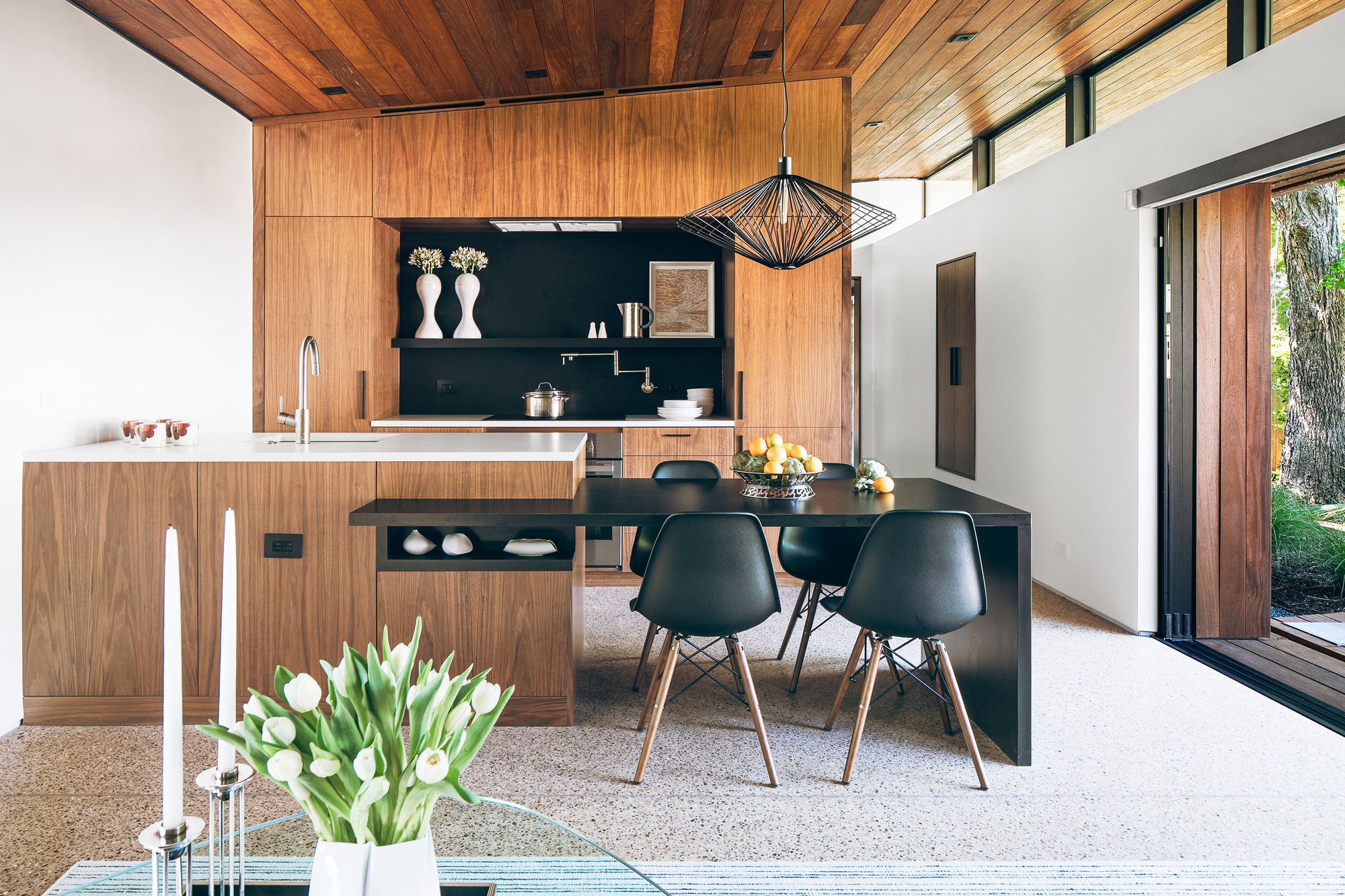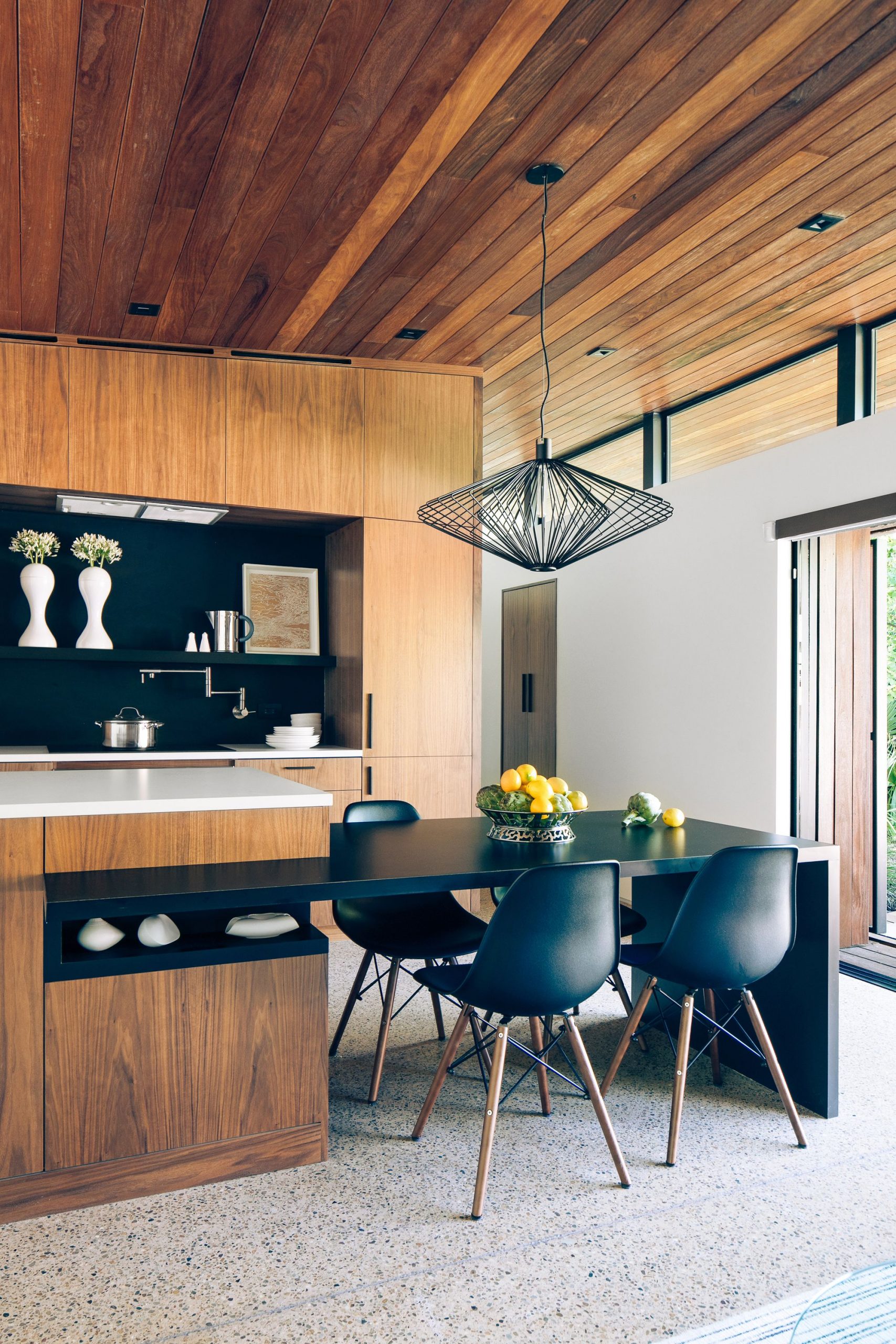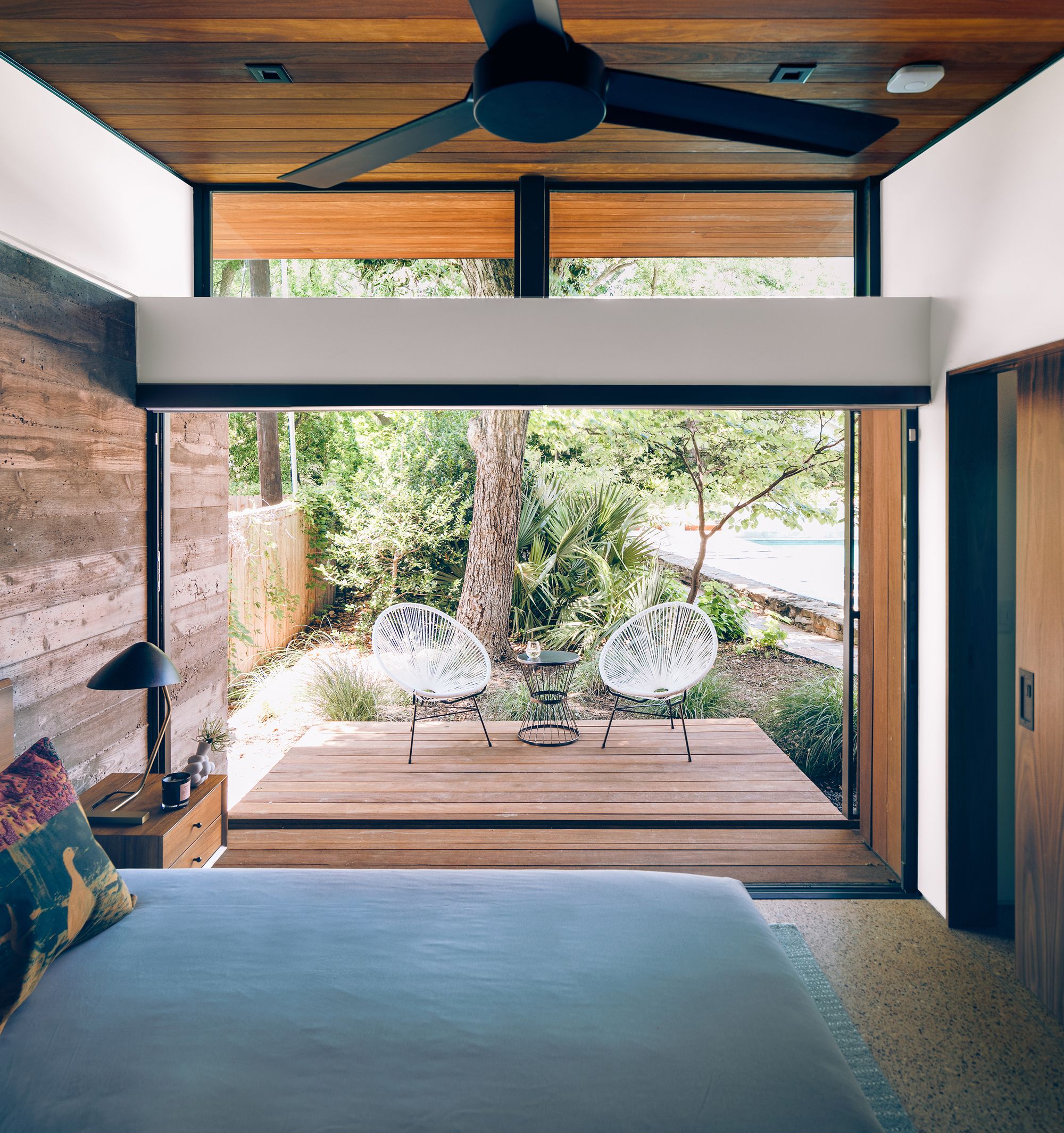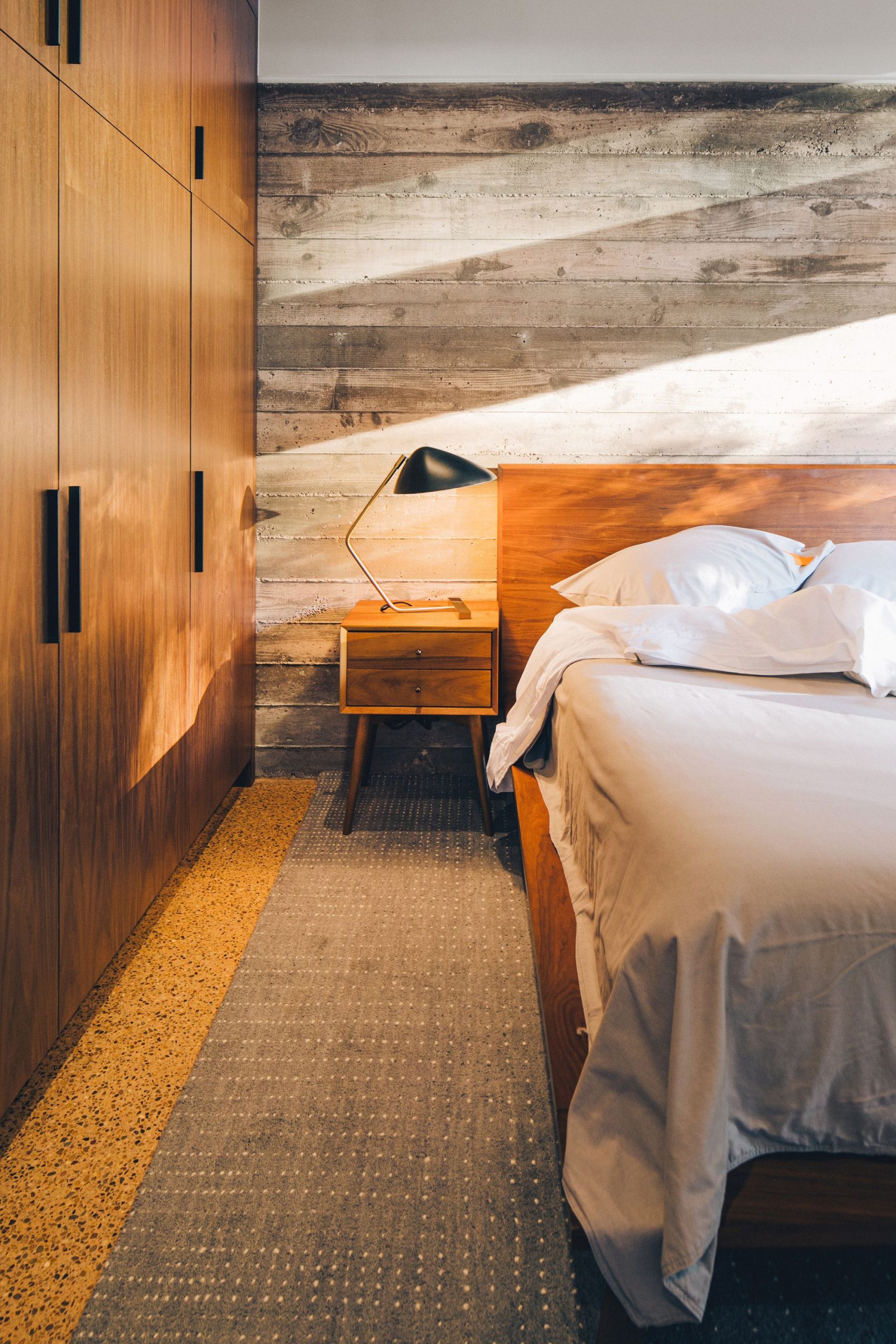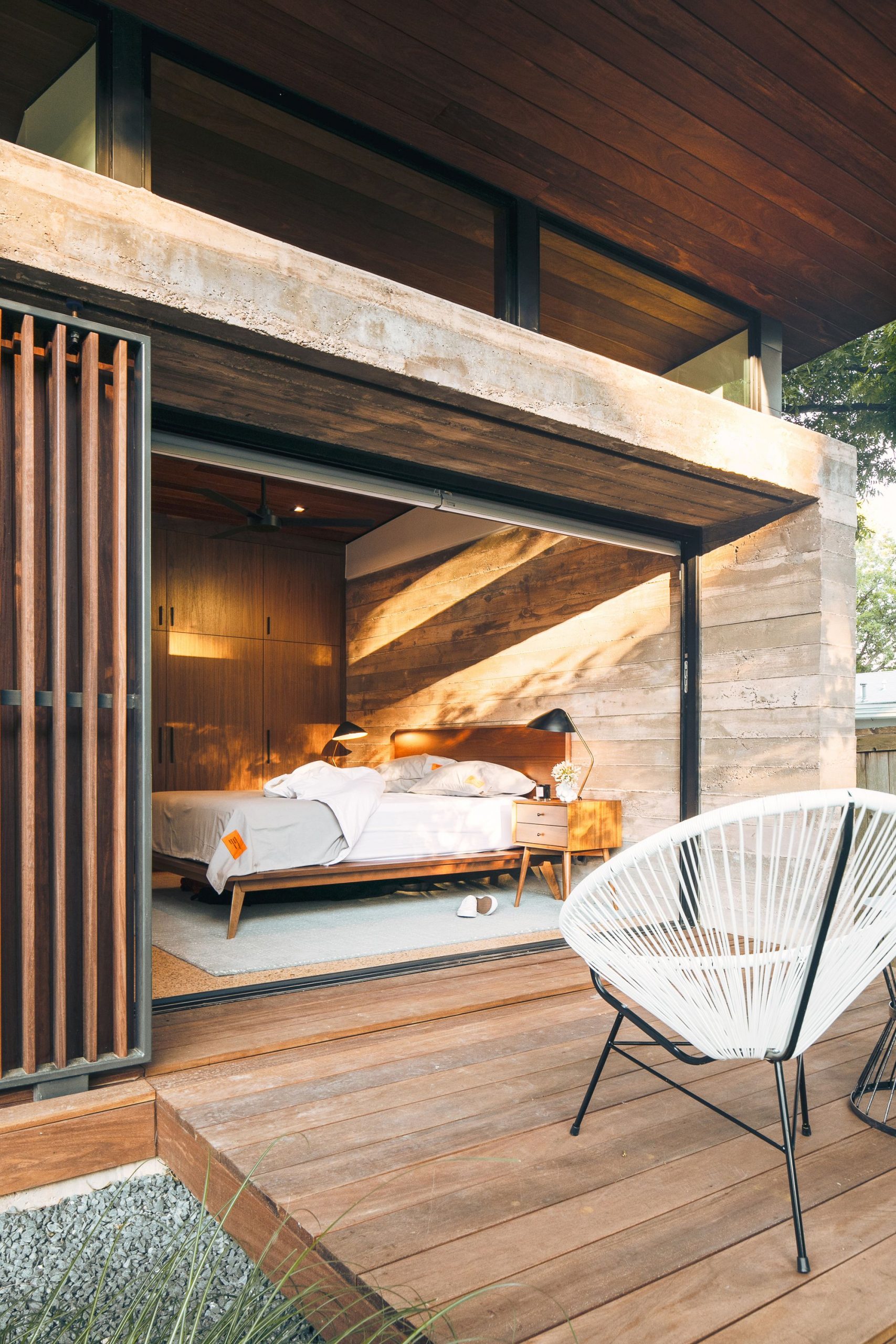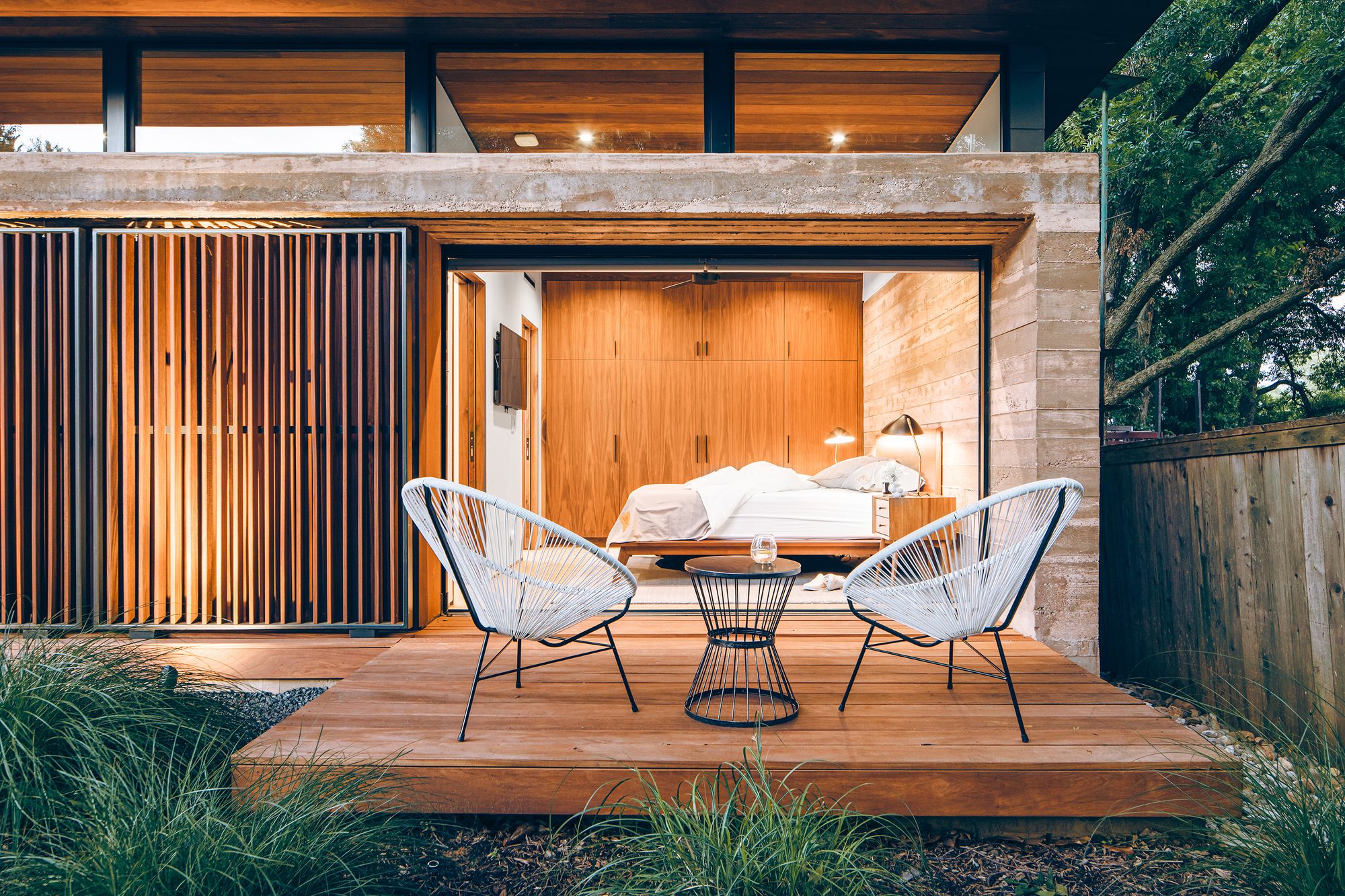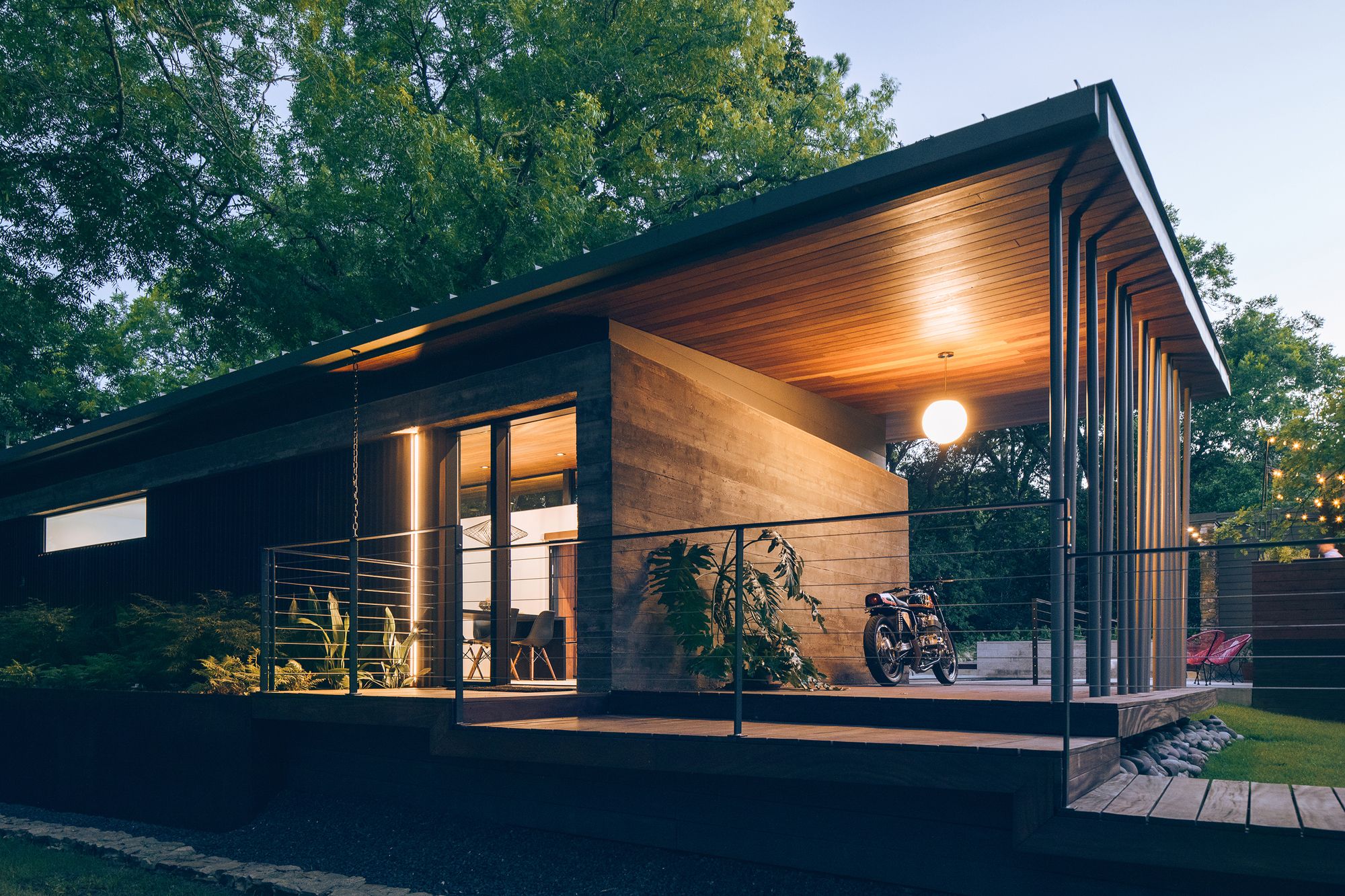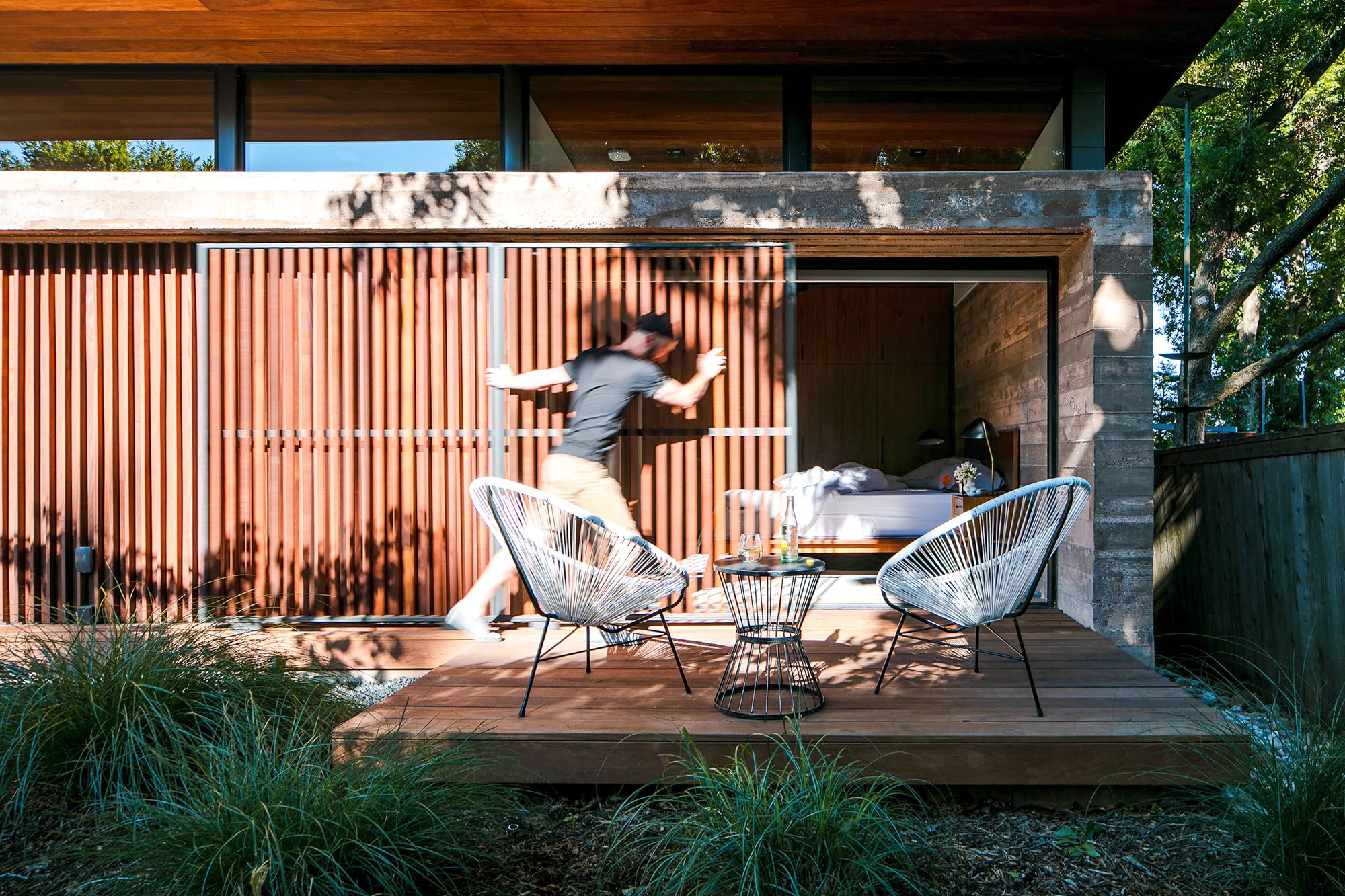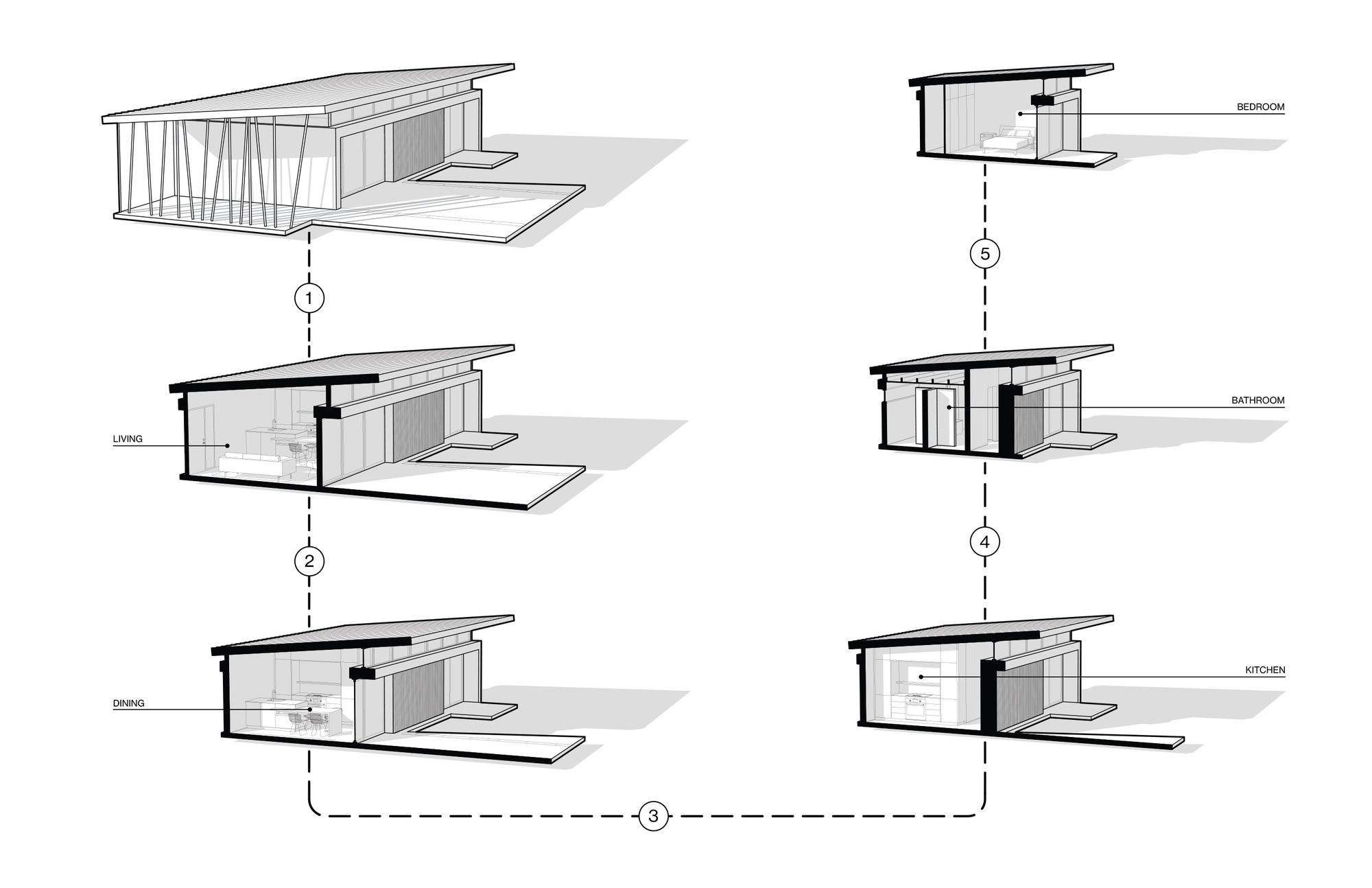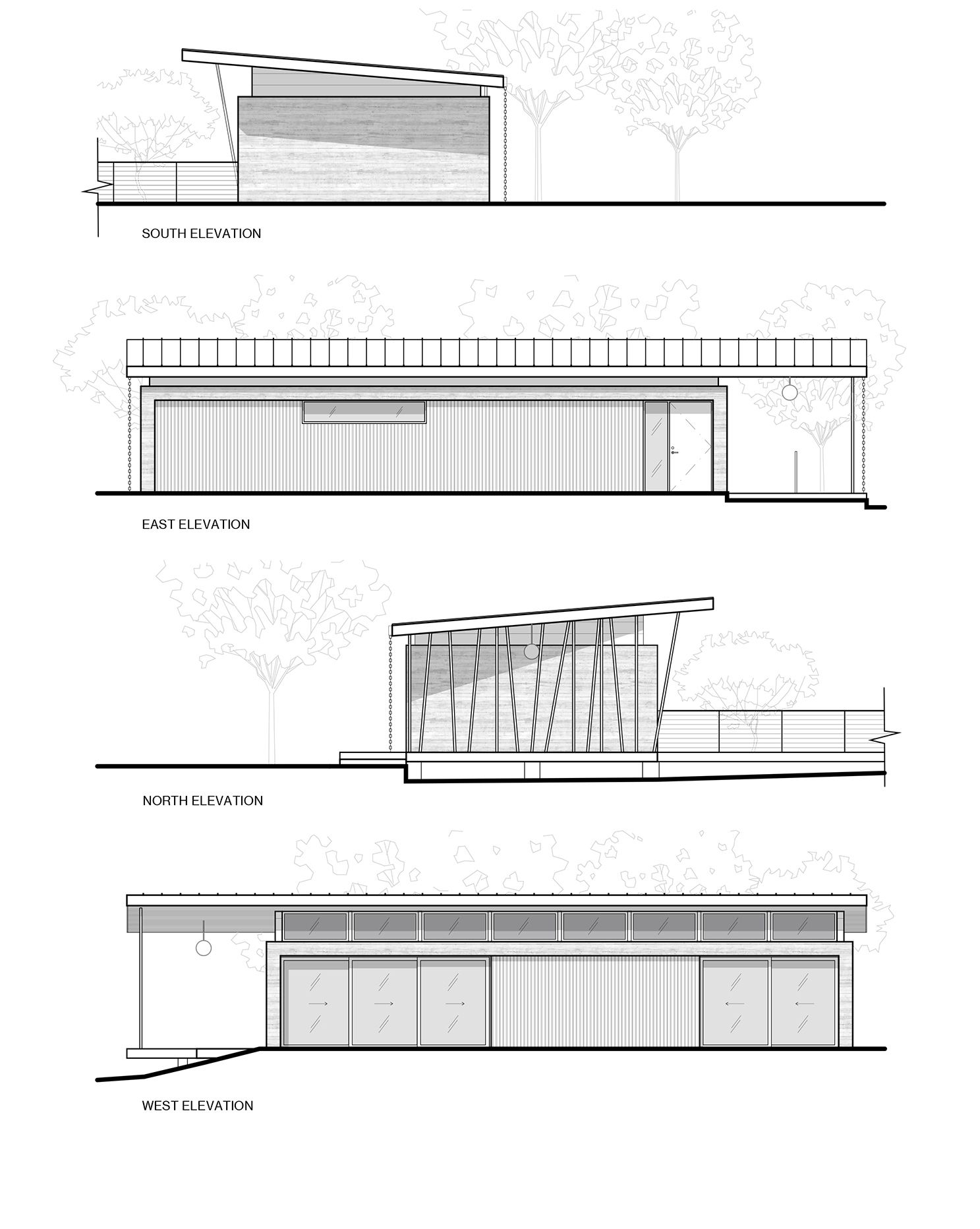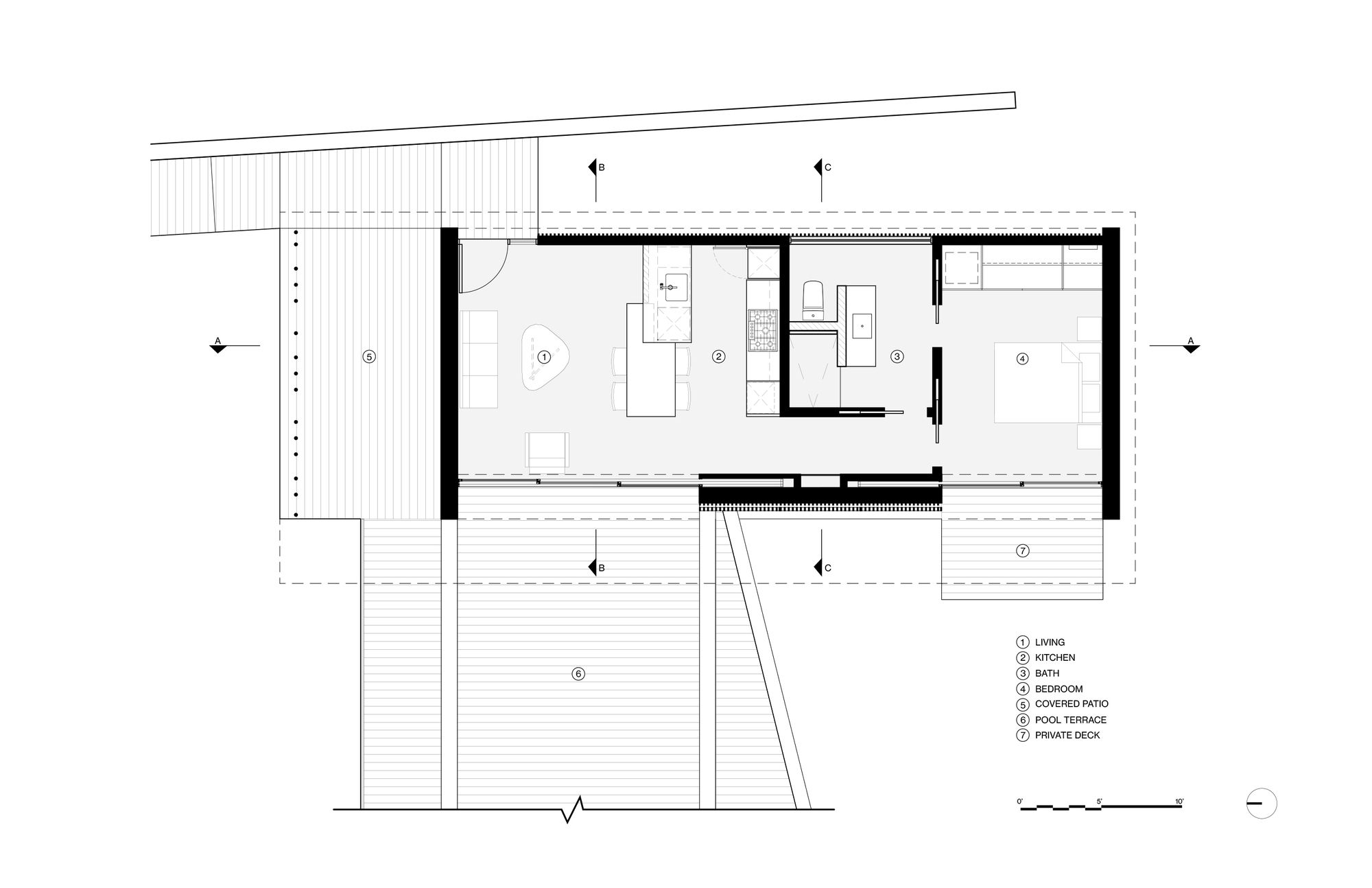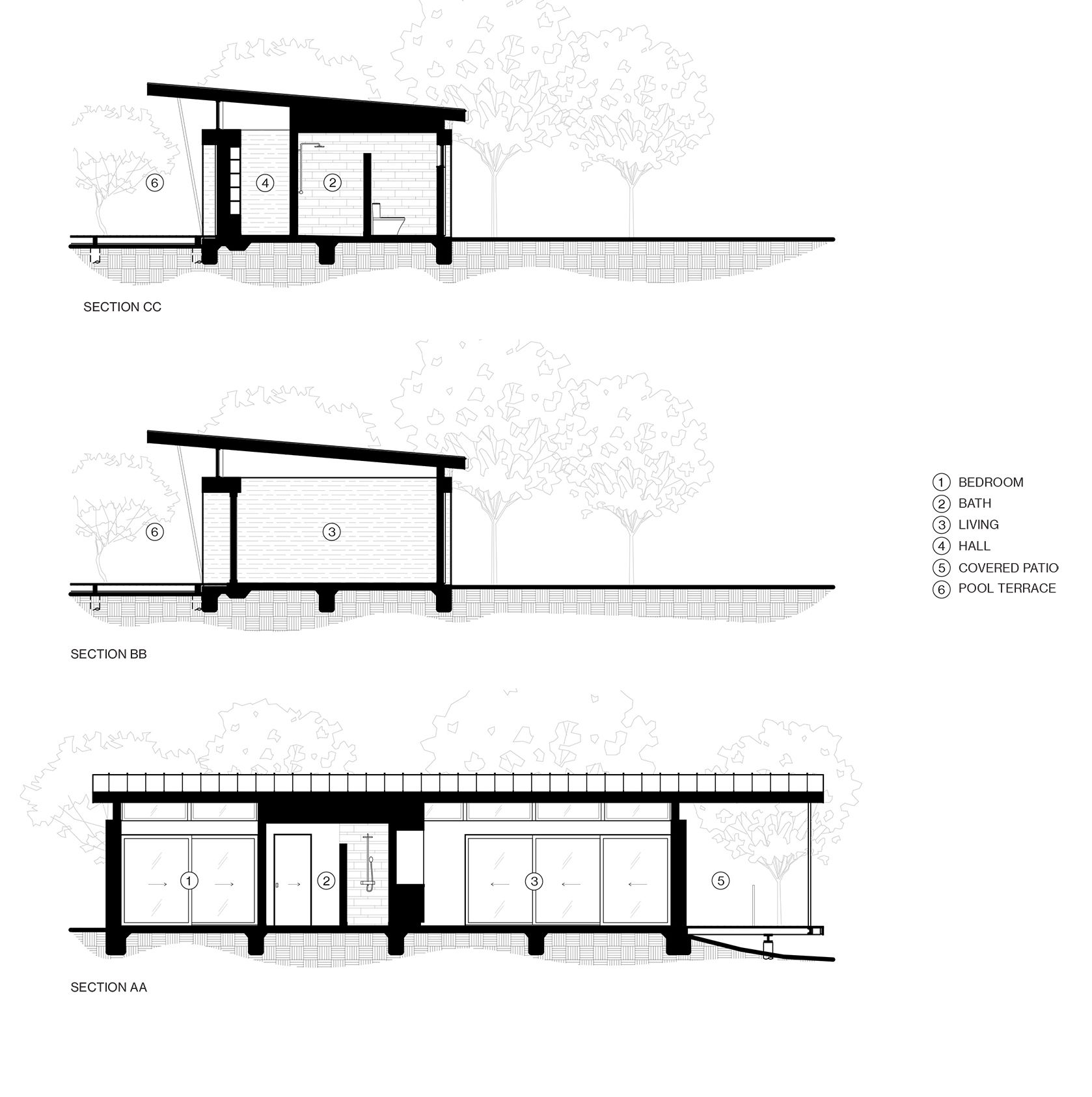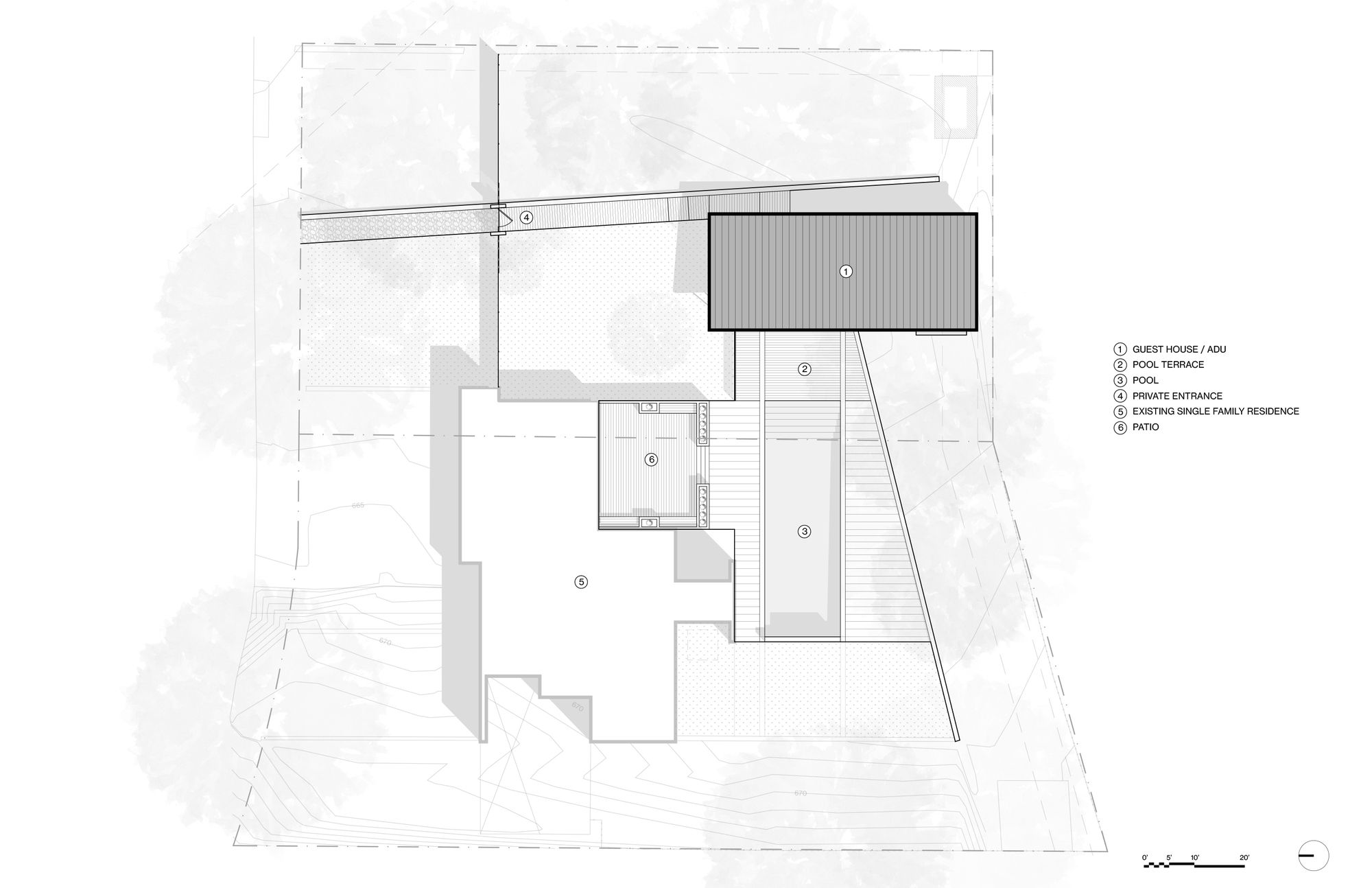Five House
Five House is an accessory dwelling to a 1,643 square foot main residence. The project sought to embrace the existing historic mid-century modern main residence on the property and provide direct engagement between the entertaining decks, linear pool, and the new accessory structure. A thorough discovery and programming phase allowed the design team to understand specific aesthetic goals and function requirements of the compact footprint.
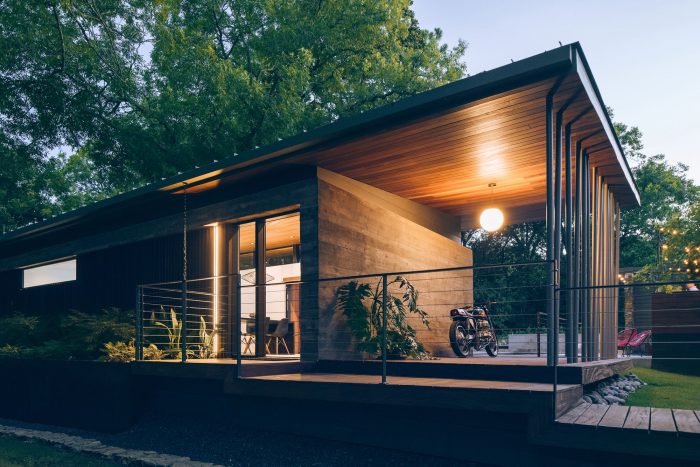
Photography by © Parrish Ruiz de Velasco
Simplicity of form, complementary proportions, and planning efficiency were primary objectives for the design concept. The dwelling is designed on a strict five-foot planning grid, which not only reinforces the primary design objectives, but is also how its name was derived: Five House.
The structure provides both a public entertainment use and a private dwelling space for guests. The living room and kitchen open directly on to the pool terrace, providing a cabana-like connection to the pool. For more private guests, the dwelling is a full-service space that can provide as much privacy as preferred through operable louvers and roller shades. During parties and gatherings, the pool-side façade can open completely with a series of disappearing glass panels. The same glass panels can be veiled by use of the rolling vertical louvers that disrupt sight lines from the main house.
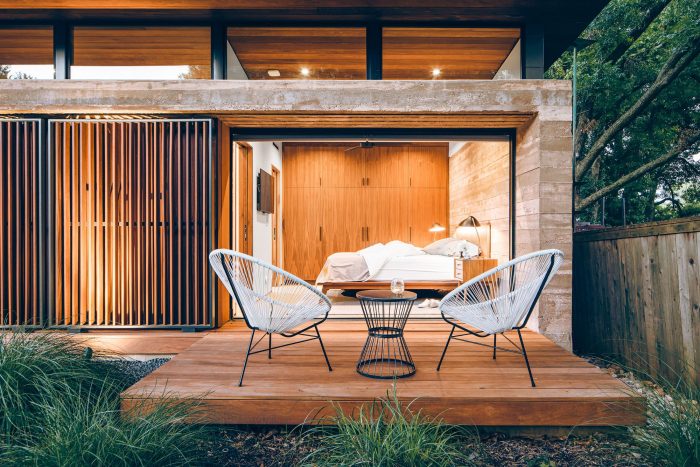
Photography by © Parrish Ruiz de Velasco
The accessory structure employs a limited vocabulary of materials, displaying rich texture and amplifying the movement of sun and shadow across the façade. A board-formed concrete frame supports a simple, mono-slope standing seam metal roof that floats above a delicate clerestory ribbon of glass. Responsibly-sourced Cumaru wood cladding is used as a strong vertical texture on the façade, as well as the decks and ceilings throughout the house.
The Living Room and Bedroom open to the outdoor decks through a pocketing glass wall, while rolling solar screens and a generous roof overhang allow for privacy and shade during the day. The 672 SF project is organized along the North-South axis of the site, engaging the natural landscape and serving as the terminus to the 50ft lap pool.
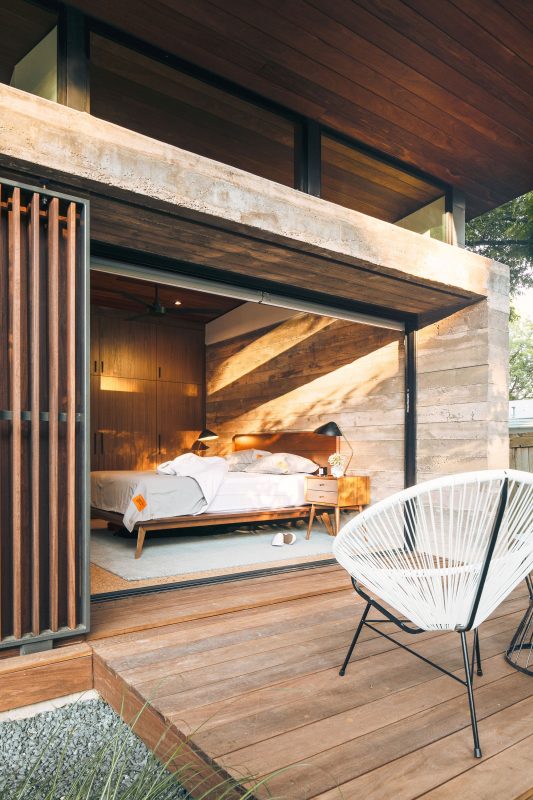
Photography by © Parrish Ruiz de Velasco
The combination of pitched ceilings and clerestory windows attribute to the spatial success and comfort of the project. The concrete frame and door opening heights of the dwelling are actually rather low, approaching a code minimum height. The design team felt that this provided a more appropriate proportion to the structure and complemented the scale of the 1949 existing residence.
The main façade of the house incorporates (5) five-foot sliding glass panels that pocket and disappear into the wall, creating direct engagement with the outdoor decks. This expands the livable area of the unit and blurs the delineation of indoor and outdoor space.
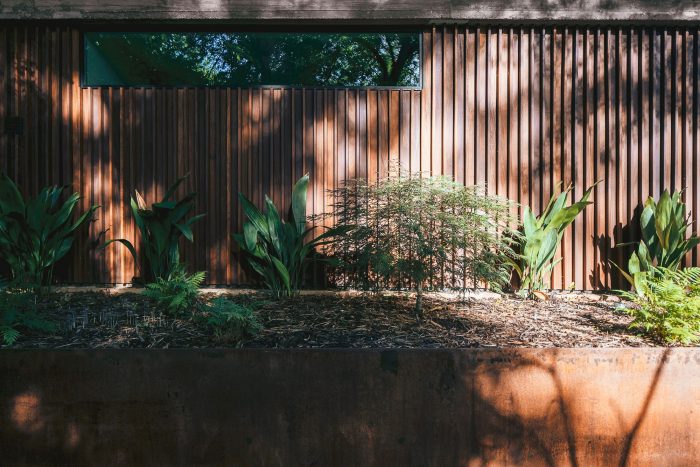
Photography by © Parrish Ruiz de Velasco
Project Info:
Architects: M Gooden Design
Location: Denton, United States
Area: 922 ft²
Project Year: 2020
Photographs: Parrish Ruiz de Velasco
Manufactures: Western Window Systems, Advantage Lumber, Cambria, Milgard, Bosch, Mosa Tile
